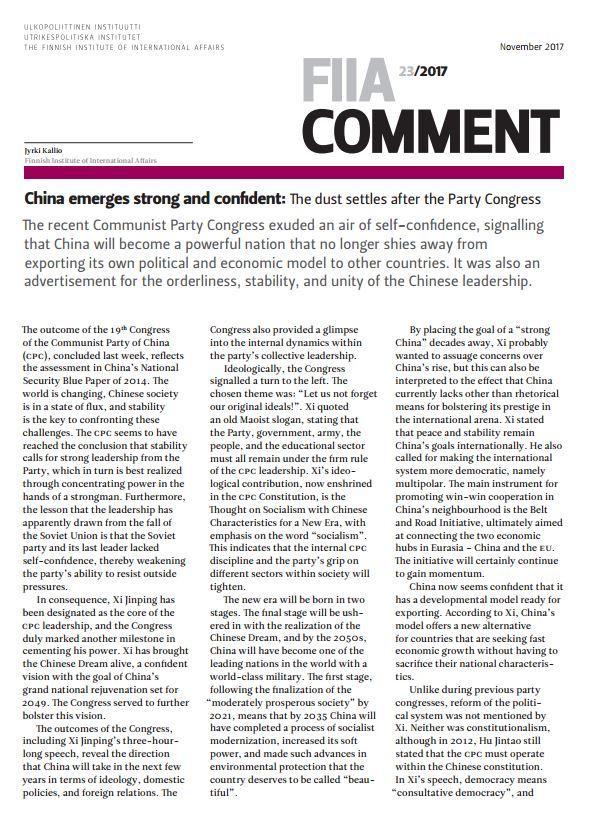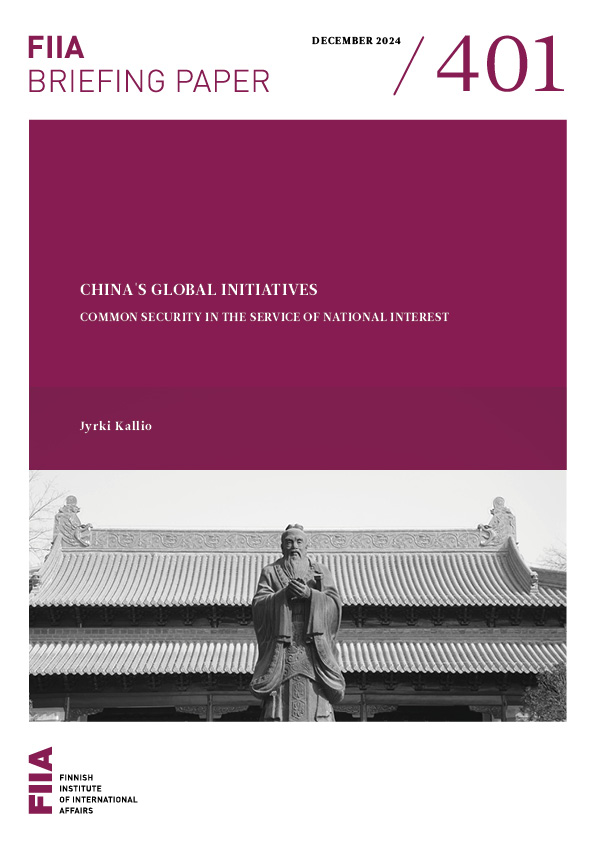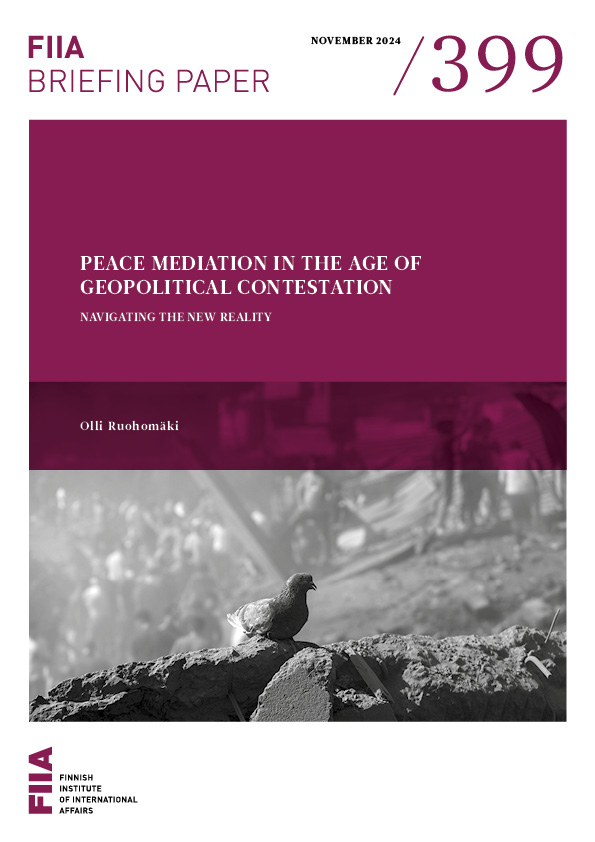The recent Communist Party Congress exuded an air of self-confidence, signalling that China will become a powerful nation that no longer shies away from exporting its own political and economic model to other countries. It was also an advertisement for the orderliness, stability, and unity of the Chinese leadership.
The outcome of the 19th Congress of the Communist Party of China (CPC), concluded last week, reflects the assessment in China’s National Security Blue Paper of 2014. The world is changing, Chinese society is in a state of flux, and stability is the key to confronting these challenges. The CPC seems to have reached the conclusion that stability calls for strong leadership from the Party, which in turn is best realized through concentrating power in the hands of a strongman. Furthermore, the lesson that the leadership has apparently drawn from the fall of the Soviet Union is that the Soviet party and its last leader lacked self-confidence, thereby weakening the party’s ability to resist outside pressures.
In consequence, Xi Jinping has been designated as the core of the CPC leadership, and the Congress duly marked another milestone in cementing his power. Xi has brought the Chinese Dream alive, a confident vision with the goal of China’s grand national rejuvenation set for 2049. The Congress served to further bolster this vision.
The outcomes of the Congress, including Xi Jinping’s three-hour-long speech, reveal the direction that China will take in the next few years in terms of ideology, domestic policies, and foreign relations. The Congress also provided a glimpse into the internal dynamics within the party’s collective leadership.
Ideologically, the Congress signalled a turn to the left. The chosen theme was: “Let us not forget our original ideals!”. Xi quoted an old Maoist slogan, stating that the Party, government, army, the people, and the educational sector must all remain under the firm rule of the CPC leadership. Xi’s ideological contribution, now enshrined in the CPC Constitution, is the Thought on Socialism with Chinese Characteristics for a New Era, with emphasis on the word “socialism”. This indicates that the internal CPC discipline and the party’s grip on different sectors within society will tighten.
The new era will be born in two stages. The final stage will be ushered in with the realization of the Chinese Dream, and by the 2050s, China will have become one of the leading nations in the world with a world-class military. The first stage, following the finalization of the “moderately prosperous society” by 2021, means that by 2035 China will have completed a process of socialist modernization, increased its soft power, and made such advances in environmental protection that the country deserves to be called “beautiful”.
By placing the goal of a “strong China” decades away, Xi probably wanted to assuage concerns over China’s rise, but this can also be interpreted to the effect that China currently lacks other than rhetorical means for bolstering its prestige in the international arena. Xi stated that peace and stability remain China’s goals internationally. He also called for making the international system more democratic, namely multipolar. The main instrument for promoting win-win cooperation in China’s neighbourhood is the Belt and Road Initiative, ultimately aimed at connecting the two economic hubs in Eurasia – China and the EU. The initiative will certainly continue to gain momentum.
China now seems confident that it has a developmental model ready for exporting. According to Xi, China’s model offers a new alternative for countries that are seeking fast economic growth without having to sacrifice their national characteristics.
Unlike during previous party congresses, reform of the political system was not mentioned by Xi. Neither was constitutionalism, although in 2012, Hu Jintao still stated that the CPC must operate within the Chinese constitution. In Xi’s speech, democracy means “consultative democracy”, and
law-based governance is subject to the Party rule. This is bad news for civil society, which will find its room for manoeuvre more constricted.
Xi defined today’s “principal contradiction” as the imbalance between the people’s desire to lead a beautiful life, and the ability of the production forces to deliver. Quality and innovation must increase. There will be a lot of “finalizing” and “deepening”. The reforms of state-owned enterprises and the financial system are among those to be deepened, but to the disappointment of many observers, there is little indication that market forces will be allowed to play a significantly greater role. Xi also omitted to mention China’s debt problem, so major economic reforms do not appear to be on the cards in the near future.
The new Politburo Standing Committee includes no heirs apparent to take Xi’s place in 2022. It may happen that such people will emerge from the Politburo within the next few years, but it is also possible that Xi will continue as party leader even after his second term. The new goalpost in 2035 seems to be tailor-made for Xi, who may not live to see the realization of his Chinese Dream.
At the moment, Xi is strong but not omnipotent. During the Congress, great caution was exercised in order not to visibly shake the system and its existing ballasts. Furthermore, the way in which his legacy was formulated in the CPC Constitution does not yet put him in the same league as Mao Zedong, or even make him runner-up.





